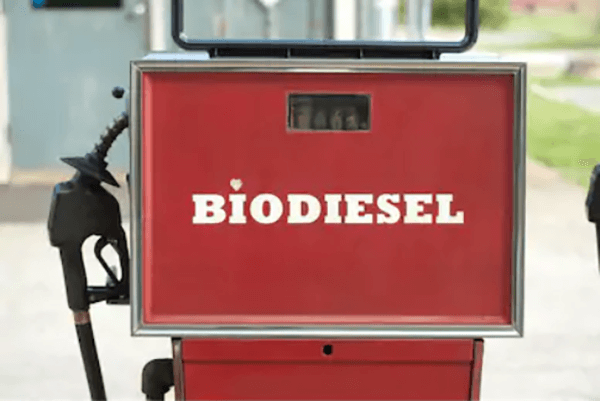Biodiesel is a fuel consisting of a long-chain alkyl ester derived from vegetable oil or animal fat. It is a renewable, clean energy source that is chemically similar to fossil diesel and generally used as a substitute for diesel. Lifeasible provides technical consulting, project design, and process optimization services for biodiesel production through the transesterification method.
With the increasing emphasis on the ecological environment by human society, biodiesel is always deemed to be more environmentally friendly compared to fossil diesel. Biodiesel can be produced directly from vegetable oils, animal oils, animal fats, butter, and discarded cooking oils. In addition, algae can also be used as a raw material for biodiesel production. Biodiesel is “carbon neutral” fuel because the carbon dioxide absorbed by biodiesel feedstock during its growth process is equal to the amount released during combustion. In this way, biodiesel is considered to without carbon output during its burning process. Besides, there is almost no sulfur elements in biodiesel, so the combustion emissions from biodiesel are naturally free of sulfur oxides. On the other hand, biodiesel has a higher flash point than fossil diesel, therefore it is safer to use biodiesel as fuel than fossil diesel. Biodiesel can be used alone or in combination with fossil diesel. When the proportion of biodiesel in the diesel mixture is less than or equal to 20%, it can be directly used in diesel equipment without modification, which makes the use of biodiesel be more convenient in life. Biodiesel has been used for transportation, such as buses, railways and airplanes.

Lifeasible provides technical support services for biodiesel production by transesterification, which is usually catalyzed by base. The base-catalyzed transesterification has a higher conversion rate and is more economical than acid-catalyzed transesterification. The base-catalyzed transesterification technology mainly includes three processes. First, the raw materials are pretreated to remove impurities in the raw materials, so that the materials can satisfy the conditions for carrying out base-catalyzed transesterification. Secondly, raw materials, a base catalyst, and alcohol (such as methanol or ethanol) are mixed to cause a chemical reaction under certain conditions, and this reaction will produce crude biodiesel and crude glycerin. Lastly, crude biodiesel needs to be refined to remove the residual alcohol to obtain the products we need. At the same time, the by-product crude glycerin which contains a large amount of alcohol needs to be recycled to obtain higher purity alcohol and glycerin. The obtained alcohol can be recycled for biodiesel production.
Lifeasible offers high quality technical consulting, project design, and process optimization services for biodiesel production. We can help customers optimize the biodiesel production process, effectively increase biomass conversion rates, reduce production costs and by-product ratios, and improve product purity based on years of experience. If you are seeking for technical support services related to biodiesel production, Lifeasible may be a good choice. Please feel free to contact us for more information.
Lifeasible has established a one-stop service platform for plants. In addition to obtaining customized solutions for plant genetic engineering, customers can also conduct follow-up analysis and research on plants through our analysis platform. The analytical services we provide include but are not limited to the following:
July 13, 2024